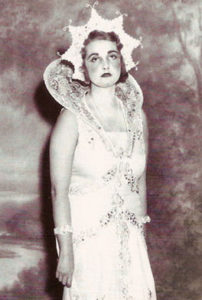If you’ve read The Darkness Knows you’ll know that Vivian is a daughter of privilege. You’ll see even more evidence of that in the second book in the series, Homicide for the Holidays. You’ll also learn that Vivian’s mother, Julia Witchell, is the youngest daughter of a Chicago meatpacking scion (and what could be more late 19th/early 20th century Chicago than a meatpacking dynasty? (But that’s another rabbit hole topic).
Vivian’s mother had wanted her to “come out” on her 18th birthday just as she had. However, times had changed since Julia’s 18th birthday in 1907 and Vivian’s in 1932. Times had changed drastically.
WWI (or The Great War as they called it at the time) happened ushering in the flapper era of the 1920s. Women coming of age in the 1920s (like Vivian) experienced a good deal more freedom than their mothers had. It became acceptable for women to smoke and drink in public, for example, and for single women to have jobs outside the home. Then the stock market crashed in October 1929 throwing the country and world into The Great Depression. There were still wealthy families in the US (the Witchells remained well off during this period), but the vast majority were struggling. Overt expressions of wealth displayed in lavish coming out parties were viewed as more than a little tone deaf – as young Woolworth heiress, Barbara Hutton, found out when she came out in November of 1930.
Her party was held at the Ritz Carlton, and she was skewered in the press for spending $50,000 on flowers alone. Invitees included stars Maurice Chevalier and Rudy Vallee. Other guests included society bigshots with names like Vanderbilt, Astor, and Rockefeller.

She looks ecstatic, doesn’t she?
Barbara Hutton became known as “The Poor Little Rich Girl” (and “Rich Bitch” to some) and went on to marry 7 times – all unhappily. Among her husbands were a Danish count, a Russian prince, and Cary Grant. Yes, that Cary Grant (and there’s another rabbit hole…)
All of this to say, that Vivian was staunchly against having her own coming out party. I found this Chicago Tribune article from 1974 that articulates Vivian’s feelings on the matter perfectly. Vivian never did have one – and to find out why you’ll have to read Homicide for the Holidays.
